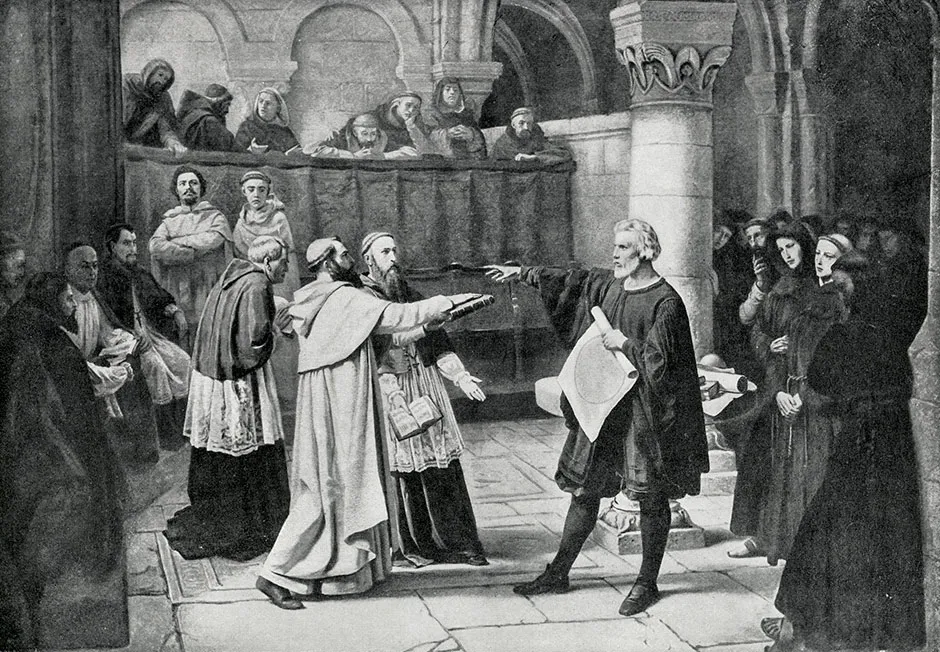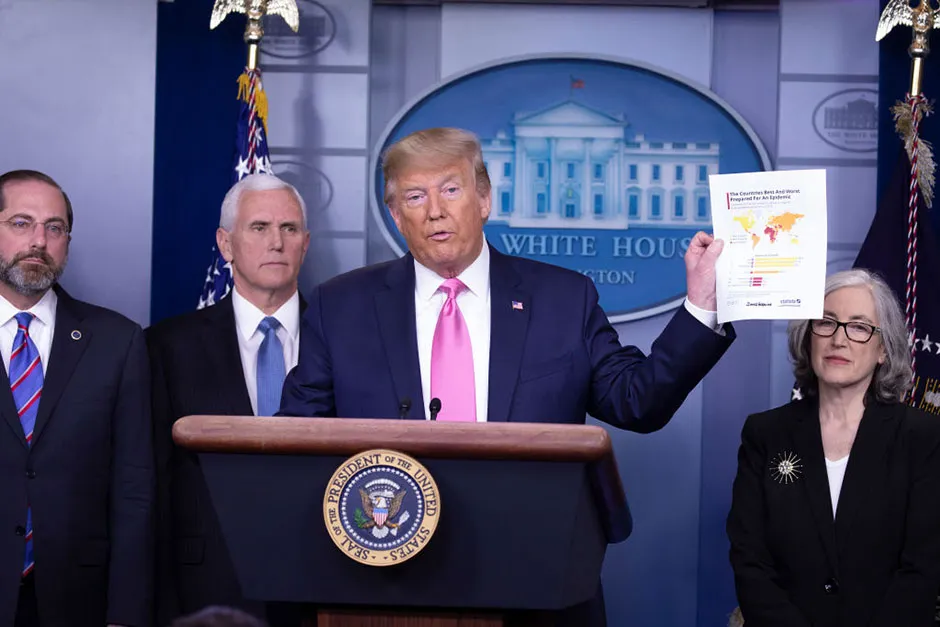Arguably, the most important aspects in which what we call the “modern” world is different from the medieval one, are related to science. The scientific revolution which was initiated in the 17th Century introduced an entirely new attitude toward facts.
What became important was not only what you believed in, but why you believed it, and exactly how you reached that belief. The founders of modern science, giants such as Galileo and Newton, advocated that there was only one way to discover scientific truths about nature: extremely patient experiments and observations, followed by reasoning, and culminating with bold theorising that could bind the collected data together into a coherent picture.
Attempts to stifle intellectual freedom and the burgeoning scientific method, such as those employed by the Inquisition against Galileo, ultimately failed to prevent scientists from adopting the correct theories, but they did have a chilling effect on progress in science for decades.
Read more about Galileo:
Following Galileo’s trial, in which he was found “vehemently suspected of heresy”, with his books being put on the Index of Prohibited Books, the famous scientist and philosopher René Descartes wrote to a mathematician friend:
“I inquired in Leiden and Amsterdam whether Galileo’s World System was available, for I thought I had heard that it was published in Italy last year. I was told that it had indeed been published, but that all the copies had immediately been burnt at Rome, and that Galileo had been convicted and fined. I was so astonished at this that I almost decided to burn all my papers, or at least to let no one see them."
The great poet John Milton, who visited Galileo in 1638, published in 1644 his impassioned plea for freedom of speech Areopagitica, in which he wrote:
“This [the Inquisition’s restrictions on ‘Philosophic freedom’] was it which had damped the glory of Italian wits; that nothing had been there written now these many years but flattery and fustian. There it was that I found and visited the famous Galileo grown old, a prisoner to the Inquisition, for thinking in Astronomy otherwise than the Franciscan and Dominican licensers thoughts.”

Unfortunately, we are still witnessing disturbing incidents of science denial today, especially in the United States. Take for example the Trump administration’s attitude toward climate change.
Even after shifting from his early preposterous comments that climate change was “an expensive hoax”, or that “the concept of global warming was created by and for the Chinese in order to make US manufacturing non-competitive,” US President Donald Trump continued to conflate climate change with the unrelated problem of clean air and water.
For example, in December 2019 he pronounced: “Climate change is very important to me. I've done many environmental impact statements in my life, and I believe very strongly in very, very crystal clear clean water and clean air.”
His actions spoke even louder than his statements and contrast with the sobering conclusions of thousands of climate studies worldwide (involving the US National Academy of Sciences and 13 Federal agencies). The US began the process of withdrawing from the Paris climate agreement.
Read more about science history:
- What are the biggest scientific misconceptions about race?
- Are synthetic chemicals really bad for you?
In addition, the administration attempted to freeze the fuel efficiency standards imposed on new vehicles, and replaced the Clean Power Act (aimed at limiting carbon emission) by much weaker regulations. Compare this to a letter written in March 1616 by the Tuscan ambassador to Rome, to the Grand Duke in Florence:
“The Roman climate is getting very dangerous for him [Galileo], and especially in this century, for the present Pope [Paul V], who abhors the liberal arts and this kind of mind, cannot stand these novelties and subtleties; and everyone here tries to adjust his mind and his nature to that of the ruler.”
The initial response to the COVID-19 pandemic was no different - total dismissal of scientific opinion. On 22 January, the President said in an interview: “We have it totally under control. It’s one person coming in from China, and we have it under control. It’s going to be just fine.”

More than a month later (26 February), President Trump was still completely sidelining the science, declaring at a press conference: “And again, when you have 15 people, and the 15 within a couple of days is going to be down to close to zero, that’s a pretty good job we’ve done.”
Even as late as 9 March, when it became clear that crucial time had been wasted, the President was trying to give the impression that the pandemic was not worse than the annual flu, saying in a tweet: “So last year 37,000 Americans died from the common Flu. It averages between 27,000 and 70,000 per year. Nothing is shut down, life & the economy go on. At this moment there are 546 confirmed cases of CoronaVirus, with 22 deaths. Think about that!”
Sadly, the administration’s anti-science attitude continues. One of the latest examples of the blatant politicisation of science came on 24 April, when the National Institutes of Health (NIH) informed the nonprofit EcoHealth Alliance, led by wildlife disease specialist Peter Daszak, that it was ending a grant (awarded in 2014 and renewed in 2019) because “NIH does not believe that the current project outcomes align with the program goals and agency priorities.”
This action came on the heels of unsubstantiated claims by conservative U.S politicians and media that the coronavirus causing the pandemic escaped from a laboratory in Wuhan, China (a lab that employs a Chinese virologist who was funded by the grant).
The decision outraged the scientific community, resulting in a letter to Francis Collins, director of the NIH, and Alex Azar, secretary of Health and Human Services, signed by seventy-seven US Nobel Laureates, in which Collins and Azar were asked to urgently review the decision.
The Nobel Prize winners wrote: “Despite the high relevance of the studies to the current pandemic, and despite the very high priority score that his application for renewal had received during peer review, the NIH informed Dr. Daszak and his colleagues that the grant was being terminated.”
The termination was announced, by the way, just one week after President Trump, when asked about this project at a press conference, replied: “We will end that grant very quickly.” Thirty-one scientific societies sent Collins a similar letter to that of the Nobel Laureates.
The key point to remember is that science isn’t always right. While Galileo was right in adopting the Copernican model for the Solar System, he was completely wrong in his model for ocean tides (eventually explained by Newton), and in his suggestion that comets represented optical refraction phenomena rather than physical objects.
Read more about great scientists:
- Alan Turing’s legacy should be for his triumphs, rather than his tragedy
- Inge Lehmann: the Danish scientist who discovered Earth has a solid inner core
In fact, scientists are the first to recognise that all scientific theories are only tentative and provisional. That is, science has to be constantly reappraised as fresh experimental and observational evidence becomes available.
But science always self-corrects, sometimes rapidly and sometimes after a longer period of time. Still, it is the best tool we have to discover and understand facts about the cosmos and about ourselves.
It is never a good idea to bet against science. To do so when human life (as in the case of the COVID-19 pandemic) or the future of the planet (as in the case of climate change) is at stake, is absolutely unconscionable!
Galileo and the Science Deniers by Mario Livio is out now (£20, Simon and Schuster).